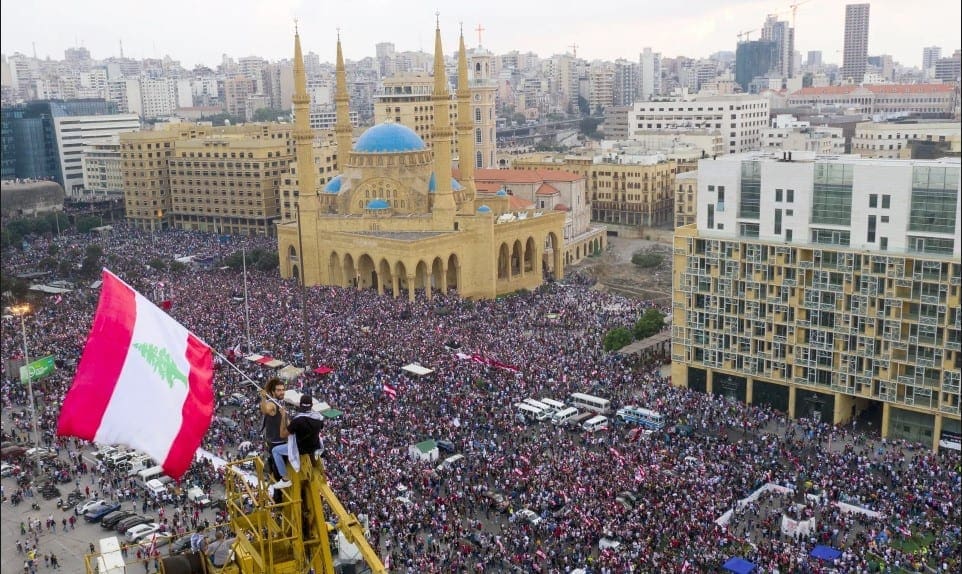“We need leaders not in love with money but in love with justice. Not in love with publicity but in love with humanity”.
These are the powerful words of protesters in downtown Beiruit, Lebanon.
Over the course of a week, tens of thousands of people have flooded the streets of Lebanon in protest against political corruption and economic woes.
These protests have grown steadily across the country, with tensions reaching an ultimate high on Thursday.
In an attempt to prevent the economic collapse of Lebanon, the government proposed to enforce a $6 per month tax levy on the messaging application, WhatsApp. As this is the main method of communication for the majority of Lebanese people, the imposition of a tax is understandably unwelcome.
Following the announcement of new tax increases, protesters marched in Beirut, Tripoli and other major cities, waving the national flag and demanding for “the fall of the regime”. They have blocked main roads and threatened to topple the country’s fragile coalition government.
Despite the governments swift abandonment of the tax on communication methods, and the resignation of the coalition party, the demonstrations have quickly grown into the largest the country has seen in 14 years. The sheer size and duration of these protests is demonstrative of a country uniting as one in the pursuit of a revolution.
The main reason for public outrage stems from a continued rate of poverty across the country. With more than a quarter of the Lebanese population living below the poverty line, rampant corruption has widened the gap between the privileged elite and the rest of the country. In her dissent against Lebanese officials, Protestor, Hanan Takkouche, stated that they are, ‘preventing badly needed reforms so that they can line the pockets of the ruling class’. In the heartbreaking words of another protestor, Mr Hussein el Hek states, “I can’t afford my daily life, I can’t afford to be in love, or marry and it is because the politicians are stealing shamelessly from their people”.
One look at the economic state of Lebanon and it is clear that the people are right to question their government’s ability to shore up the government’s finances. Lebanon’s economy has neared a precipice with a national debt of 150% of GDP and rising, whilst their central bank reserves have plunged 30% in the past year and the local currency continues to slip against the dollar. When interviewed by the Guardian, an unidentified woman, revealed that she cannot afford to send her son to school, that she does not have electricity or insurance and that the garbage remains on her street all because, “our politicians have no mercy, they steal our salaries and livelihood”.
A nationwide general strike has been called for Monday to demand an overhaul of the government despite the resignation of government ministers on Sunday. This means that banks, shops and schools will all be closed, while travel may be restricted as the main streets are already blocked.
Our hearts are with the people of Lebanon and their families all over the world during this difficult time.

